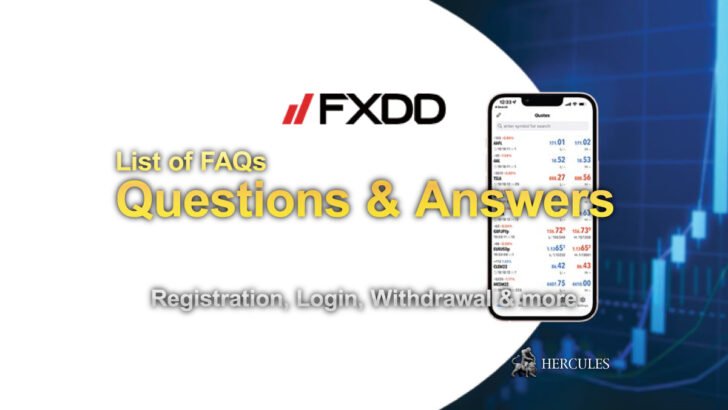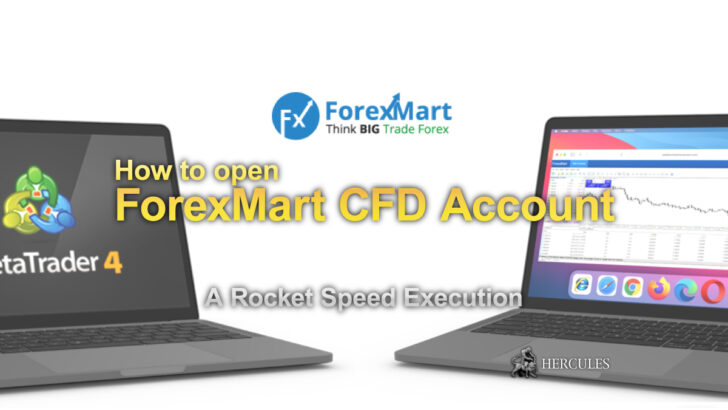Question: Is CFD trading better than Spread Betting?
Difference between CFD and Spread Betting
Both Spread Betting and Contract for Difference (CFD) trading are derivatives of financial markets, allowing traders to speculate on the price movements of various financial instruments. They offer alternatives to traditional forms of investing, where traders need not own the underlying asset to profit from market movements.
| CFD | Spread betting | |
|---|---|---|
| Asset type | All assets: currency pairs, stock assets, commodity market assets, cryptocurrencies | All assets: currency pairs, stock assets, commodity market assets, cryptocurrencies |
| Trading mechanics | A position is opened in lots; the cost of a point (profit or loss) is determined by the volume of the position | A position is a bet that determines the price movement by 1 point. Movement by 3 points in the direction of the forecast means a 3x profit, in the opposite direction – a 3x loss |
| Available trading instruments | Any | Any. Disadvantage: fewer custom and underlying instruments compared to CFDs |
| Leverage | Available | Available |
| Initial investment | From 50-100 USD on standard accounts | Depends on the conditions of the company. There may be a minimum bet amount requirement |
| Permitted strategies | Scalping, swing trading, intraday, medium- and long-term strategies | Short term strategies. The deposit cannot withstand other types of strategies |
| Regulation | Regulated by Central Banks, regulators and authorized bodies. There is a risk associated with licenses from offshore regulators | There is regulation, but much depends on local legislation. Almost all risks are borne by the investor |
| Access | Highly accessible in many countries of the world, with the exception of isolated countries and countries where restrictions apply | Relatively few platforms providing the service |
| Profitability | Medium | Relatively high |
| Risk level | Medium | Relatively high |
These two forms of trading have several similarities
- No Physical Ownership:
- With both spread betting and CFD trading, you never own the actual asset. Rather, you are speculating on the price movement of the underlying asset. For instance, when you engage in stock CFD trading, you won’t have any voting rights at shareholder meetings since you do not actually own the stock. Similarly, spread betting does not grant ownership rights.
- Potential for Unlimited Gains or Losses:
- Both spread betting and CFDs offer the potential for unlimited gains. The more the price moves in the direction of your forecast, the more you stand to earn. However, the potential for loss is equally limitless. The loss in both cases is limited by the amount of the deposit or the stop order. To manage this risk, both types of trading allow for the early closing of the trade.
- Leverage Availability:
- Both spread betting and CFD trading offer the use of leverage. Leverage allows you to control a large position with a small deposit. It can magnify your profits, but it can also magnify your losses. It’s essential to use leverage wisely and understand its risks.
- Common Terminology:
- The terminologies used in both trading practices are more or less the same. Terms like long and short positions, stop loss, pip, and more are used interchangeably. This commonality makes it easier for traders to switch between the two.
Despite these similarities, there are fundamental differences between spread betting and CFDs.
Go to Deriv’s Official Website
Difference Between Spread Betting and CFD Trading
The primary difference between spread betting and CFDs is how they calculate the volume of the position involved in the transaction, the potential income, and the level of risk.
Case Study:
Let’s assume you have 10 USD, and you wish to open a long position in the EUR/USD pair, with a current buy rate at 1.0135.
- Spread Betting: If you bet 10 USD that the EUR/USD rate will go up and it does, you close the trade at the sell price of 1.0160. The profit is calculated as the difference between the buy and sell prices, multiplied by the bet amount and adjusted by the number of points. The capital gain here would be (1.0160 – 1.0135) x 10 = 250 USD.
- CFD Trading: To open a position, you need 0.01 x 100,000 x 1.0135 = 1,013.50 USD. The point value will be 0.1 USD, and the profit at the closing price from the previous example is 2.5 USD.
Here, in spread betting, with a bet of 10 USD, the profit is 250 USD. But with the smallest possible investment in CFDs of 1,013.50 USD, the profit is only 2.5 USD. The risk of loss could be reduced by betting smaller amounts, but then the potential profit or loss would be the same as in CFDs.
Visit Deriv’s Official Website
A few more differences are as follows
- Trade Opening Mechanics:
- In CFD trading, trade volume is calculated in lots, determining the value of a point. On the other hand, in spread betting, the trader decides the value of a point by the amount of the bet on the value of an asset going up or down.
- Risk Level:
- With the same trade amount, the possible losses in spread betting can be much higher compared to CFD trading.
- Leverage:
- The function of leverage in spread betting and CFDs varies slightly. In both cases, it can be used to increase the position or bet size, but in CFDs, leverage is also used to reduce the broker’s margin for an equal position size. This is done to adhere to risk management rules.
- Dividend Adjustment:
- In CFD stock trading, if you open a long position, you’ll receive a dividend adjustment. If you open a short position, the adjustment is deducted from your profits. In spread betting, dividends aren’t accounted for.
- Taxation:
- The tax implications for spread betting and CFDs can differ based on local laws. In some regions, profits from spread betting are tax-free, while CFD trading profits are subject to capital gains tax. Always consult with a financial advisor or tax expert to understand the implications.
- Regulatory Aspect:
- A CFD broker acts as an intermediary that places a trader’s trades on the real market, subject to financial legislation. Spread betting is considered gambling, so services are provided by betting companies, and profits come from the losses of the company’s other clients.
Open a trading account with Deriv
Spread Betting
Spread betting is a form of investment where an investor places a fixed bet on the direction an asset’s price will move. The ‘spread’ refers to the difference between the buying price and the selling price of the asset. The funding rate is the amount a trader bets per point of price change.
Here’s an example of a long position in spread betting. Let’s say the price of an Apple share is $173.00. You bet 5 USD that the price will go up. If the price increases by 0.5 USD or 50 points, your profit would be 50 x 5 = 250 USD. If the stock goes down by 0.5 USD, you would suffer a loss of 250 USD.
Advantages Of Spread Betting
- High Profit Potential: The ability to quickly earn a lot of money is a significant advantage of spread betting. But it’s essential to remember that losses can also accumulate just as quickly.
- Simplicity: Spread betting can be more straightforward for beginners since the “bet” amount is immediately expressed in monetary terms, reducing the need for additional calculations.
Disadvantages Of Spread Betting
- High Risks: Spread betting has high financial risks. It involves potentially losing more than the initial investment, so it’s not suitable for everyone.
- Short-term Trading: Due to its high risk, spread betting is primarily used for short-term trades. Holding positions open for a longer duration can lead to considerable losses.
Open a trading account with Deriv
CFDs
A Contract for Difference (CFD) is a derivative financial instrument representing an agreement to exchange the difference in the value of an asset from when the contract is opened to when it is closed. The trader doesn’t own the underlying asset; instead, they’re only speculating on its price movements.
In a CFD trade, if you believe that the price of an asset will rise, you ‘buy’ (open a long position). Conversely, if you think the price will fall, you ‘sell’ (open a short position). The difference between the opening and closing price of the contract determines your net profit or loss.
Advantages of CFD Trading
- Low Entry Threshold:
- A trader can start CFD trading with a relatively small initial investment. This lower barrier to entry makes it accessible to many potential traders.
- Range of Markets:
- CFDs cover a wide variety of markets. Traders can speculate on the price movements of various asset classes such as forex, stocks, commodities, indices, and more.
- Flexibility:
- CFDs are flexible in terms of contract size. You can trade as much or as little as you like, subject to the minimum contract size of the CFD provider.
- Advanced Analytical Tools:
- CFD trading platforms typically offer a range of free analytical tools. This includes live news feeds, charts, and educational resources, which can help you make informed decisions.
- Ability to Go Short or Long:
- With CFDs, you can potentially profit from both rising and falling markets.
Disadvantages of CFD Trading
- High Leverage Risks:
- While leverage can amplify profits, it can also amplify losses if the market moves against your position.
- Transaction Costs:
- CFD trading involves transaction costs. The broker may charge commissions, spreads, and overnight financing costs, which can eat into your potential profits.
- Less Regulatory Protection:
- Compared to traditional stock trading, CFD trading can offer less protection to investors. This is because the regulatory requirements for CFD brokers may not be as stringent as for traditional brokers.
Conclusion
Both spread betting and CFDs have their unique advantages and disadvantages. The choice between the two depends on your individual circumstances, trading goals, and risk tolerance.
Remember that trading in any form involves significant risks and should only be undertaken with a clear understanding of these risks. Both spread betting and CFD trading, particularly when done on a leveraged basis, can lead to losses exceeding your initial investment. Always consult a financial advisor or do your own thorough research before engaging in such trades.
Remember that tax laws are subject to change and can vary based on your personal circumstances. The above information is an interpretation of the tax laws as of the date of publication. Please consult an advisor for the most current advice.
In summary, spread betting and CFDs provide dynamic alternatives to traditional forms of investing. Understanding their differences, similarities, and the risks involved can help you make informed decisions in your trading journey.
Go to Deriv’s Official Website
FAQs to conclude the article
- What is the mechanism behind spread betting?
- Let’s consider a scenario where you wager 2 USD on an anticipated price surge. If the price elevates by a single point and you decide to close the trade, you’ve just made a profit of 2 USD. If, however, you close the trade after a 5-point increase, your earnings would be 10 USD. Remember to factor in the time it takes for the price to span these points. For instance, in the case of Apple shares, a 5-point shift is the minute difference between 173.05 and 173.10 USD, a span covered within mere seconds.
- Which is better: CFD or spread betting?
- The answer hinges on your individual aims. If the thrill of swift, short-term investments excites you and you’re prepared to accept the potential rapid loss of money, then spread betting is a fitting option. However, if your objective leans towards mitigating risks and fostering long-term trades, CFDs would be the optimal choice.
- Can spread betting yield profits?
- Absolutely. If you have a sound grasp of technical and fundamental analysis, possess skills in risk calculation, and have a stable emotional state, you stand a good chance of making money via spread betting.
- Does spread betting pose risks?
- Indeed, it does. Spread betting, unlike CFD trading, has the point value contingent on the bet size. A minor price fluctuation of several points, which would equate to mere cents in CFD trading with a minimal trade volume, can equal the total bet amount in financial spread betting. The minimum bet for most betting platforms starts at 1 USD. This implies that spread betting entails risks that are about ten times higher than those involved in trading.
- Are CFD or spread betting more lucrative?
- If initial conditions are kept constant, spread betting is more profitable. In CFD trading, the investor is obligated to purchase the asset at its full price. The larger the position, the higher the point value, and consequently, the greater the profit. In contrast, spread betting allows the investor to define the point value by the amount bet, meaning that to achieve the same profit as in CFD trading, spread betting requires a much smaller deposit.












